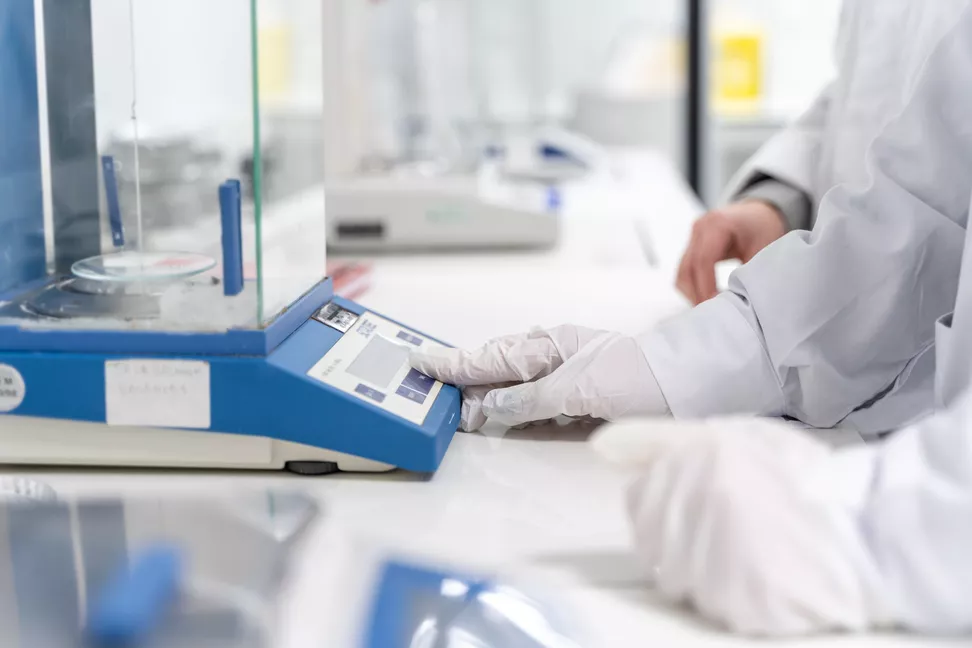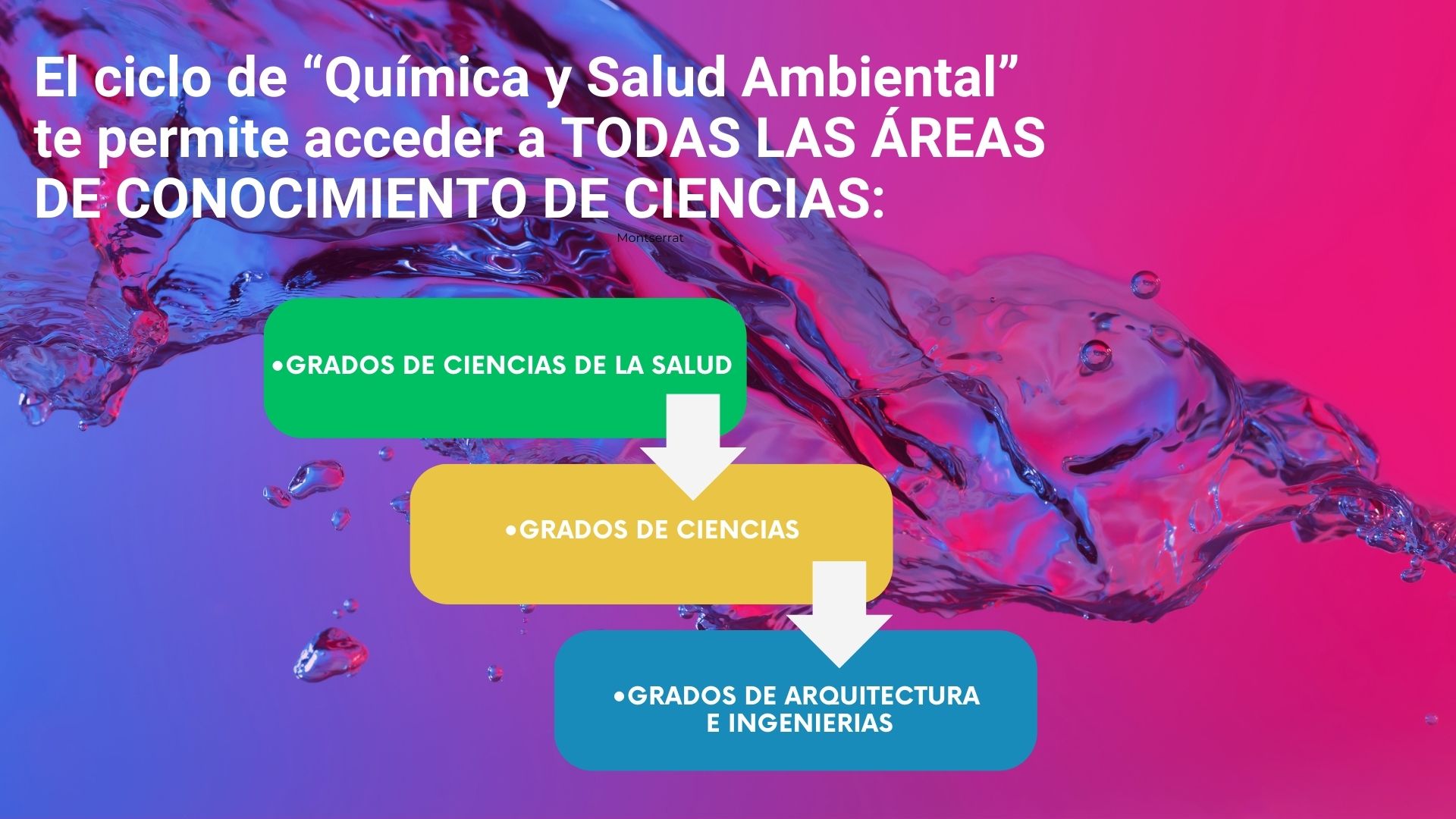The holder of this diploma will have acquired the General Competence with regard to:
- Monitoring and controlling the effects on health of environmental and food risk factors;
- Participating in the implementation and development of environmental management systems;
- Intervening in public and community health education programmes under the supervision, where appropriate, of his or her superior, in accordance with established protocols, respecting the reference standards in terms of quality and safety.
| Professional Module | Hours-total | Year |
|
Health and Risks in the Built Environment
|
99 | 1st |
|
Control of Harmful Organisms
|
198 | 1st |
|
Water Control
|
330 | 1st |
|
Environmental and Atmospheric Pollution
|
165 | 1st |
| Personal itinerary for employability I | 120 | 1st |
| Digitalization applied to productive sectors | 60 | 1st |
|
Environmental Management Systems
|
100 | 2nd |
| Environmental Health Unit | 99 | 2nd |
|
Education for Health and the Environment
|
80 | 2nd |
|
Food Control and Safety
|
200 | 2nd |
|
Waste Control
|
120 | 2nd |
|
Professional English
|
63 | 2nd |
|
Intermodular project
|
50 | 2nd |
| Personal itinerary for employability II | 63 | 2nd |
| Sustainability applied to productive sectors | 42 | 2nd |
| Optional modules | 84 | 2nd |
Access to the High-level courses or modules requires compliance with at least one of the following conditions:
- To be in possession of the Post-compulsory High School Diploma or a certificate proving that all subjects of the Post-compulsory High School have been passed.
- To have passed the third year of the Unified and Polyvalent Baccalaureate (BUP): Accreditation through academic certification of having passed all subjects leading to the Post-compulsory High School regulated by Law 14/1970, of 4 August, on General Education and Financing of Educational Reform, after completing the third year of aforesaid studies (Order EFP/1210/2021 of November 2, which establishes the equivalence, for the purposes of access to vocational training courses, of certain studies and qualifications prior to the current education system).
- To have passed the second year of the Experimental Post-compulsory High School (Bachillerato experimental).
- To be in possession of a Technician certificate (Intermediate-level Vocational Training).
- To be in possession of a Higher Technician or Specialist Technician certificate, or equivalent for academic purposes
- To have passed the University Orientation Course (COU).
- To be in possession of any university degree or equivalent.
- To have passed the entrance exam for higher-level training courses (it will be required to be at least 19 years old in the year the test is taken or 18 for those who have a Technician’s degree).
- To have passed the university entrance exam for those over 25 years old.
Either you work in the following areas:
- Managing environmental health units and regulatory documentation for environmental management systems, applying control, surveillance, and safety plans.
- Evaluating the consistency and reliability of the results obtained from environmental controls and analyses, validating the data obtained.
- Promoting healthy habits among people, participating in the development of environmental education and health promotion programs.
- Obtaining and preserving samples according to specific protocols, applying standardized procedures.
- Verifying the operation of control, treatment, and analysis equipment, performing first-level maintenance for treatment and analysis.
- Monitoring and controlling waste management, identifying associated risks and implementing the established plan.
- Monitoring and controlling the quality of the built environment and the activities carried out within it, identifying associated risks and proposing actions to ensure regulatory compliance.
- Monitoring and controlling food quality, applying analytical techniques and food safety protocols.
- Verifying air quality and controlling atmospheric emissions, applying purification and analytical techniques.
- Monitoring and controlling risks associated with vectors of public health concern, applying, where appropriate, biocides and phytosanitary products used for their control.
- Ensuring process traceability by preparing and recording the documentation generated in the established format.
Or you continue studying:
- Professional specialization courses.
- Another Higher-level Vocational Training course with the possibility of establishing validations of professional modules in accordance with current regulations.
- University studies: this course allows you to access all areas of science (health science degrees, science degrees, and architecture and engineering degrees), with the possibility of establishing validations in accordance with current regulations.
What are the career opportunities?
This professional works primarily in the healthcare sector, within the public or private sector, in potentially polluting productive sectors and in national, regional, and local administrations in services related to health and/or the environment.
This professional will be able to:
- Manage environmental health units and regulatory documentation for environmental management systems, applying control, surveillance, and safety plans.
- Evaluate the consistency and reliability of the results obtained from environmental controls and analyses, validating the data obtained.
- Promote healthy habits among people, participating in the development of environmental education and health promotion programs.
- Obtain and preserving samples according to specific protocols, applying standardized procedures.
- Verify the operation of control, treatment, and analysis equipment, performing first-level maintenance for treatment and analysis.
- Monitor and control waste management, identifying associated risks and implementing the established plan.
- Monitor and control the quality of the built environment and the activities carried out within it, identifying associated risks and proposing actions to ensure regulatory compliance.
- Monitor and control food quality, applying analytical techniques and food safety protocols.
- Verify air quality and controlling atmospheric emissions, applying purification and analytical techniques.
- Monitoring and controlling risks associated with vectors of public health concern, applying, where appropriate, biocides and phytosanitary products used for their control.
- Ensure process traceability by preparing and recording the documentation generated in the established format.
These teachings include the knowledge required to carry out basic level activities for the prevention of occupational risks.








